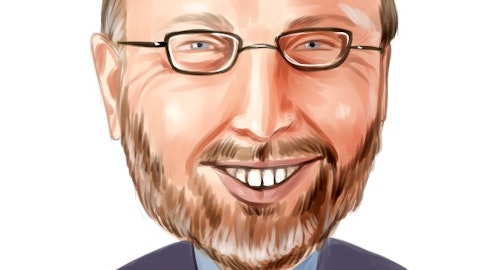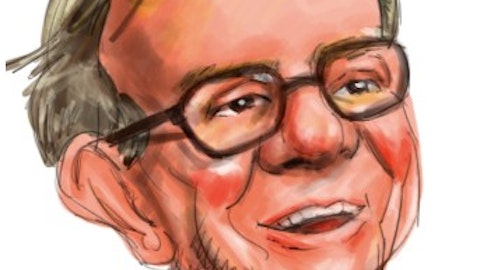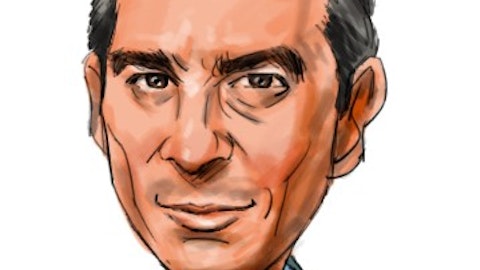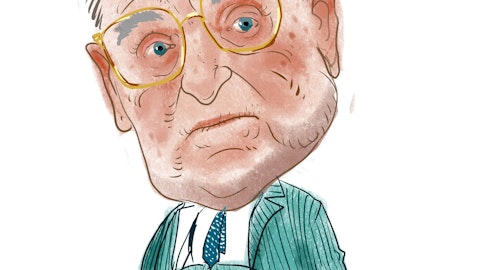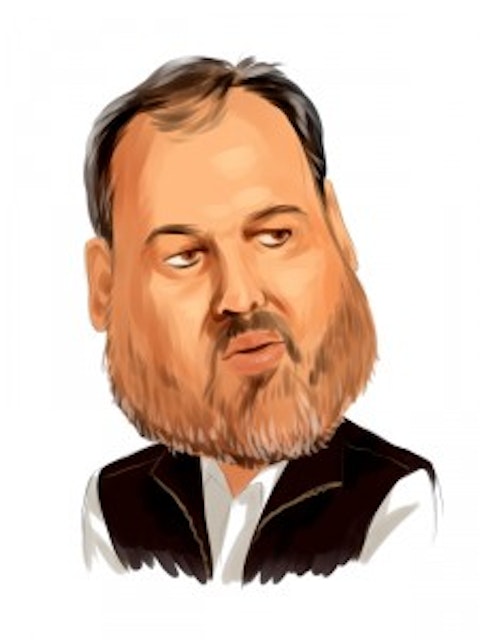
Passport Capital LLC, the $3.4 billion hedge fund founded by John Burbank, plans to wind down its materials fund after a 31 percent loss this year, according to a letter to investors obtained by Bloomberg News. The Passport Materials Fund fell 17 percent in the second quarter, the fund’s portfolio managers, James Cunningham and Sebastien Boifort, said in a letter to investors dated yesterday.
SAC Re launches bringing another $500m of capital to the reinsurance market (Artemis)
We’ve reported regularly on the influx of capital from investors such as hedge funds into the reinsurance market via both traditional reinsurance start-ups and non-traditional instruments such as catastrophe bonds. Now the reinsurance market has another $500m of capital to help temper rates from the launch of Bermuda based SAC Re. The reinsurer launched yesterday announcing it had raised $500m of capital in a private placement of the equity securities of its parent, S.A.C. Re Holdings, Ltd. SAC Re is the reinsurance play of Steven A. Cohen, the billionaire hedge fund manager and founder of SAC Capital Advisors LP. He becomes the latest hedge fund manager to launch a reinsurance play in Bermuda after Daniel Loeb with Third Point Re and David Einhorn with Greenlight Re. Cohen’s SAC Re will follow a similar strategy in that the aim is to gain additional capital for the hedge fund business from the reinsurance market.
U.S. hedge fund asks court for Telus proxies following failed share consolidation (FinancialPost)
The U.S. hedge fund that holds a major stake in Telus Corp. and successfully intercepted the telecom company’s plan to consolidate its dual share class is attempting to force Telus to surrender documents related to shareholder support of the cancelled plan. Mason Capital Management LLC filed a petition with the Supreme Court of British Columbia Tuesday, requesting Telus disclose unredacted advanced shareholder voting documents so it decide what to do with its stake in Telus.
Mastered by the universe (Economist)
IT IS turning into another difficult year for the hedge fund industry. A survey by Globeop found that, in June, funds suffered the largest withdrawals in assets since October 2009. Eurekahedge found that hedge funds suffered their fourth consecutive month of negative returns in June; in the first half of the year, they eked out a return of 1.3%, compared to a 3.7% gain for the MSCI World index. That follows a 3.6% decline in 2011. for those investors who picked a fund-of-funds, with the accompanying extra layer of fees, a 0.4% return this year followed a 5.4% loss in 2011. In short, investors have lost money over the last 18 months. The marketing claims of hedge funds have changed over the years. In the 1990s, the glory days of George Soros and Michael Steinhardt, it was argued that hedge fund managers were the “smartest guys in the room” who could produce superior returns. In the 2000s, as equity markets faltered, it was claimed that hedge fund managers delivered absolute returns; they tended not to lose money. But then they lost almost 20% in 2008. So now people talk about the uncorrelated returns hedge fund managers achieve.
Citi Says: Second Big Wave of Allocations on the Way (AllAboutAlpha)
In a recent report, “Institutional Investment in Hedge Funds,” Citi Prime Finance makes the case that the hedge fund industry experienced what was but a first wave of new institutional allocation in the period 2003 to 2007, when institutions redirected their capital out of actively managed long-only funds and into hedge funds with a variety of strategies. Citi expects the second wave shortly. The second wave, as Citi foresees it, could result in another $1 trillion entering industry coffers, more than doubling assets under management. Further, there might be “an additional $2 trillion opportunity in these convergence zone products where hedge funds and traditional asset managers will compete head to head” such as UCITS products.
Hypocrisy on Libor Is Massive: Hedge Fund (CNBC)
It’s a free world — especially when it comes to the financial markets. When writing a contract around Libor the two contracting parties tend to be big boys. Retail customers last I checked have most of their contracts priced off the prime rate. When it comes to the market participants who use Libor, they have a myriad of choices when it comes to referencing interest rates: Federal Reserve funds, U.S. treasurys, gilts, Swap rates, the prime rate and a zillion other interest rates and derivatives. The Libor rate setting process is, or should have been well understood by the contracting parties – if they did not like it, they could choose another interest rate.
Wall Streeters Trade Pinstripes for Chords at Mercury Lounge (NYTimes)
By day, Neil Holstein wears a suit to his job as a managing director at JPMorgan Chase. But on Tuesday night, he let his hair down, dressed in denim and played bass on stage before an audience of his colleagues on Wall Street. A crowd from banks and hedge funds had packed the Mercury Lounge in Manhattan for Wall Street Rocks, a concert to raise money for charities that support military veterans. Now in its second year, the event exposed a wild side of Wall Street — one that won’t draw the ire of regulators.
Crack cocaine and the death of Eva Rausing: why this ‘street drug’ attracts the super-rich (Telegraph)
In popular mythology, crack cocaine is smoked by poor black people on South London estates or the projects of New York, while braying hedge fund managers and ditzy fashion journalists snort meticulously chopped lines of powder from glass-topped tables (or, a new favourite, their unused iPads). It’s not as simple as that, as the death of Eva Rausing – wife of Hans Kristian Rausing, heir to the £4.5 billion Tetra Pak drinks carton fortune – seems to indicate.
AAPL a Trillion Dollar Stock? ‘I Expect So,’ Einhorn Mutters to CNBC (Barrons)
In case you missed it, hedge fund Greenlight Capital’s David Einhorn was on Squawk Box on CNBC this morning, saying that he is still a “big bull” on Apple (AAPL) shares. “We’re not in Apple for a quarter, we’re two, three years into the Apple investment, and the way it seems headed, it’s likely we’ll be there for a good while longer.” When someone in the studio chimed in, saying Apple would be “the first trillion-dollar company,” Einhorn concurred, muttering “I would expect.”
2012 “Dirty Dozen Worst Financial Advisors in America” Announced in Beta Launch of BrokerCop.com (HedgeCo)
BrokerCop.com, a website for investors only, announced its beta launch with its 2012 List of “Dirty Dozen Worst Financial Advisors in America.” These bad brokers were not only murder on their clients’ portfolios, but these brokers also commit murder on their clients, literally, say the site’s creators. Even sick children are not immune from these crooks! BrokerCop.com’s member forums are always free and already offer real consumer ratings, reviews, and information on more than 10,000 stock brokers, brokerage firms, investment promoters, and investments.
Get to know a Toronto startup: Gijit (BlogTo)
Productivity. Just hearing the term leads many to instinctively pull out their blackberry and begin responding to the latest email in their inbox. It’s an interesting concept, as the general perception in society is that if you aren’t busy, you haven’t justified your existence. Just yesterday, I heard a great conversation between two hedge fund managers that went something like this: Navy Suit: “I’m too busy! I proactively scheduled 12 meetings today to increase our corporate synergy!” Pinstripe Suit: “Oh yeah? While you were busy trying to boil the ocean, I leveraged a new strategy to capture the next low hanging fruit opportunity!” Isn’t Bay Street a wonderful place? It seems that everyone is too busy these days, but thankfully, Gijit is going to help us get our life back on track. Heralding from downtown Toronto, Gijit can easily be described as your calendar’s assistant. As you book a meeting with someone in Google Calendar, Gijit’s friendly assistant goes to work for you. After entering the booking, Gijit will scour the net to find out who you are meeting, what they look like, what their story is and even the type of cereal they ate that morning (the value of twitter never ceases to amaze me).
GOP Tax Plan Benefits Hilton, Trump, Reid Says (ABCNews)
The floodgates, opened by President Obama yesterday, over taxes have been opened on Capitol Hill. And pouring out is the heavy election-year rhetoric with both parties trying to gain the upper hand with the expiration of the Bush-era tax cuts looming at year’s end. …“Congressional Republicans want to lavish huge across-the-board tax breaks on billionaire hedge fund managers and people like mega rich celebrities like Donald Trump,” Senate Majority Leader Harry Reid, D-Nev., said this morning on the Senate floor, “fabulously rich so-called small business owners like Kim Kardashian and Paris Hilton could qualify for these wasteful giveaways.”
Neumann issues first ad in Senate race (JSOnline)
Former U.S. Rep. Mark Neumann unveiled his first ad Tuesday in the race for U.S. Senate and said in a news conference he’d like to see all the Republicans participate in more debates. “I’d like to see a debate in every major media market,” Neumann said. “That’s the only way you offset all the other things in the race (from third-party groups).” Two debates are planned before the Aug. 14 primary. Neumann faces three other Republicans — Assembly Speaker Jeff Fitzgerald of Horicon, businessman and hedge fund manager Eric Hovde and former Gov. Tommy Thompson.
Kleiner Loses First Round in Discrimination Case (NYTimes)
The venture capital firm Kleiner Perkins on Monday lost its bid to take a discrimination lawsuit out of the public eye. A San Francisco Superior Court judge tentatively ruled that the plaintiff in the case, Ellen Pao, could not be compelled to take the case to arbitration, which is what Kleiner wanted. Lawyers for both parties will appear in court on Tuesday, after which the judge will issue a final ruling. Even that is not the end, of course; Lynne Hermle, representing Kleiner, will undoubtedly appeal if the matter goes against her client.
T. Boone Pickens’s Largesse Offers ‘Cautionary Tale’ for How Universities Deal With Donors (Philanthropy)
Oil billionaire T. Boone Pickens’s $165-million gift to Oklahoma State University sports seven years ago, and his subsequent involvement in the athletic department’s financial moves, are a cautionary tale that demonstrate “the risks colleges take when they allow big donors to call many of the shots,” according to The Wall Street Journal. Cowboy Athletics, the fund charged with investing and spending the money, lost 68 percent of its endowment value because it put the entire gift and additional assets into Mr. Pickens’ hedge fund, BP Capital, which took a significant hit in the 2008 market collapse.
Criminal probe led gov’t to change release of data (Macon)
Federal criminal and civil investigators looked into possible leaks of economic data that the government provides early to news organizations, according to a report released Tuesday by the Labor Department. …The probes are part of a broader investigation of insider trading by the SEC and federal law enforcement authorities. Their investigation has resulted in dozens of charges and several high-profile convictions, mostly of hedge fund employees.
Joy, trepidation and fear at Canadian Pacific – all at the same time (RailJournal)
THE worst-kept secret in the North American railway industry for more than a month has been the identity of the new chief executive of Canadian Pacific Railway (CP). For the record, Mr Hunter Harrison was named president and CEO of CP on June 29. It is a bit of a puzzle why it took the newly-constituted CP board more than a month to determine that Harrison was the right person to take over Canada’s second-largest railway and one of just seven Class I railways in North America.
Tony Blair’s political comeback delayed due to anti-war protests (AmericaBlog)
Where does one go to give the protesters a big hug and thank them for delaying the return of Tony Blair? He will still be back, but humbling this pompous jerk is much appreciated. Much like Bill Clinton, Blair did his best to put a smiley face on doing deals with bankers, showing everyone just how reasonable and with the times the left could be, all while setting up the most destructive recession since the 1930’s. In Blair’s case, soon after he left office he took a comfortable position with the sleazy Wall Street power, JPMorgan for millions per year. For everyone else, they were left with the expensive bill and recession due to the banking crisis. While Blair was setting up a hedge fund with equally oily Bill Clinton, the middle class was having to deal with job cuts, services cuts and an faltering economy.
Shell towers deal would be ‘safe’ place for Duncan money (FuelFix)
A potentially huge deal in which the family of late billionaire Dan Duncan is reportedly paying about $550 million for Shell Oil’s downtown headquarters would provide a solid investment in an uncertain economy, observers said Monday. Over the past few years, high-net worth individuals have been active buyers of commercial real estate, said Dan Fasulo, managing director of Real Capital Analytics in New York. “It’s almost as if they don’t care about the price they pay,” Fasulo said. “They see the government printing money, uncertainty in Europe, the possibility of a double dip recession. They just want to put their money someplace safe.”
Forget the Big Players, Smaller Brokerages May be Your Future Employer (HedgeCo)
As Wall Street firms continue to consolidate, many financial professionals are losing their jobs. Others are having a difficult time finding work. Very few have been able to walk away from the financial crisis completely unscathed. “What happens when a big company buys a smaller one is that they find out that they’ve got functions that are duplicating each other,” Kerry Given, Founder and Managing Director of Parkwood Capital, LLC, told StreetID. “They realize they can get rid of some people.” Consequently, Given does not expect future job growth to come from firms that are taking advantage of this M&A trend. Rather, he thinks job seekers should look elsewhere for employment.
Hedge Funds Trail Vanguard As Elliott Returns Atypical (Bloomberg)
Before they discovered hedge funds, pension funds and endowments typically held portfolios with 60 percent in equities and 40 percent in bonds. Many would be better off if they had stuck with the old formula. Hedge funds have trailed both the Standard & Poor’s 500 Index and a Vanguard index fund with the same 60/40 mix over the past five years, according to data compiled by Bloomberg. The balanced fund beat the main Bloomberg hedge-fund index in six of the last seven calendar years, according to data compiled by Bloomberg.
Japan Insider-Trade Crackdown Targets ‘Animals Run Wild’ (Bloomberg)
Japan’s crackdown on insider trading barely scratches the surface of a practice that allows traders to profit and brokerages to boost their underwriting business at the expense of shareholders and issuers. The disclosures have undermined confidence in the world’s second-largest stock market, where the Nikkei 225 Stock Average (NKY) remains 77 percent below its 1989 peak and scandals such as the accounting fraud at Olympus Corp. and covered-up losses at AIJ Investment Advisors Co. deter investors from a waning economy.
Winston & Strawn, Gibson Dunn, Skadden: Business Of Law (Bloomberg)
DuPont Co. (DD), the most valuable U.S. chemical company, didn’t tell investors for years that efforts to develop its own herbicide-tolerant soybean seeds had failed, Monsanto (MON) Co. told a jury at the start of a patent trial. DuPont knew as early as 2006 that its GAT soybeans didn’t grow as well as Monsanto’s Roundup Ready beans and didn’t make the information public until 2009, George C. Lombardi, an attorney for Monsanto, said yesterday at the start of a patent trial in St. Louis. Monsanto is suing DuPont for adding the Roundup Ready trait to make its product work, a patent infringement it said is worth as much as $1 billion.
Dump Moody’s As Credibility Of Ratings Crumbles, BTIG Says (Bloomberg)
Moody’s Corp. (MCO) shares may drop as the market’s indifference to its downgrades prods bond issuers to stop paying for ratings, according to Mark Palmer, an analyst for BTIG LLC, a trading firm in New York. As Moody’s cut its ratings on banks worldwide, the company was fired by Denmark’s Nykredit Realkredit A/S and the mortgage unit of Danske Bank A/S (DANSKE), the country’s biggest bank. Investors continued to buy the lenders’ bonds after the decisions, which may show other issuers that they can stop paying fees to the New York-based company, Palmer wrote in a report today.
Tribune Judge Will Rule On Bankruptcy Exit Plan This Week (Bloomberg)
Tribune Co., the biggest newspaper publisher in bankruptcy, will learn this week whether it has won the first of two rulings it needs to leave bankruptcy this year, the judge overseeing the case said. U.S. Bankruptcy Judge Kevin Carey said today in a hearing in Wilmington, Delaware, that he has almost finished writing a 50-page opinion on Tribune’s proposal to divide ownership of the newspaper and television company among its senior lenders, including JPMorgan Chase & Co. (JPM), and hedge funds Oaktree Capital Management LP and Angelo, Gordon & Co. Carey said he plans to issue the decision by July 13.
Navistar Seeks Most Of $73 Billion China School Bus Sales (Bloomberg)
John McKinney sat outside a Beijing Starbucks, sipped his coffee and scanned the traffic. He was looking for school buses, or what passes for them in the world’s most-populous nation. A dozen school-bound vehicles rolled by on their morning runs. Some were minivans, while others were shuttle buses or former coaches painted yellow. None was the tried-and-true design used in the U.S. since the 1930s. McKinney, head of Navistar International Corp. (NAV)’s bus business, picked up his iPhone and snapped away. His bosses took note.
Touradji’s Chief Executive Peter Borish Leaves Hedge Fund (Bloomberg)
Peter Borish, chief executive officer of Touradji Capital Management LP, left the commodities hedge fund founded by Paul Touradji after six months, becoming the fifth high-ranking executive to leave since the start of 2011. Borish was let go last month, Bob Zito, a spokesman for the New York-based fund, said by phone today. “He was originally on a six-month contract and had a CEO role focused on marketing,” he said. Borish couldn’t immediately be reached for comment.
Patriot Bankruptcy May Leave Peabody Liable For Expense (Bloomberg)
Patriot Coal Corp.’s bankruptcy may leave competing U.S. mining companies Peabody Energy Corp. (BTU) and Arch (ACI) Coal Inc. liable for expenses related to Patriot operations they once owned. Peabody, the largest U.S. coal producer ranked by sales, may be responsible for liabilities for the treatment of black lung disease that were assumed by Patriot when it was spun off from Peabody in 2007, according to a February filing. Peabody may be responsible for the liabilities, which are expected to be less than $150 million, should Patriot be unable to fund them, according to the filing.
Hedge funds pin hopes on French revolution (Reuters)
France’s small band of hedge fund managers, long dismissed as risk-addicted buccaneers in their home market, are betting on a renaissance as investors burned by stocks and sovereign debt look elsewhere for returns. It is a Europe-wide trend but one that matters in France, where big investors such as insurers and retirement funds – holding 2 trillion euros assets – are more risk-averse and put less into hedge funds than peers abroad.
Encana tipped off Chesapeake to land plans in Michigan – Emails (Reuters)
As Chesapeake Energy Corp and Encana Corp face antitrust investigations, emails reviewed by Reuters indicate that top executives of the two rivals shared sensitive information that gave Chesapeake the upper hand in deals with Michigan land owners. The emails show the competitors traded information about whether Encana was halting new land leasing in Michigan in 2010, and the information prompted Chesapeake to dramatically change its leasing strategy in subsequent weeks and helped send Michigan land prices tumbling from record highs.
Ex-Credit Suisse Asia Pac FX head to launch hedge fund (Reuters)
The former head of foreign exchange in Asia Pacific for Credit Suisse, David Curtis, is preparing to launch his own hedge fund by October to trade G10 and Asian currencies, boosting a strong pipeline of start-ups in the region this year. Curtis, who has a quarter century investment track record, has set up Northbridge Park Asset Management in Sydney.
Ex-Och-Ziff duo tap Mt Kellett exec for Asia hedge fund (Reuters)
Maso Capital has hired former Mount Kellett Capital executive Allan Finnerty for a top role at the hedge fund being set up by former managing directors of Och-Ziff Capital Management Manoj Jain and Sohit Khurana. Finnerty has joined as a chief operating officer to help the Hong Kong-based hedge fund launch by the end of 2012, two sources familiar with the matter said.
Paulson Ex-Lieutenant Caught in Fund’s Slide (WSJ)
John Paulson has lost a lot of money for investors recently—one of his largest hedge funds lost more than half of its value last year and continued its decline this year. One surprising victim of the fund manager’s recent bad run: Paolo Pellegrini, a former lieutenant who helped make Mr. Paulson a multibillionaire. Mr. Pellegrini was one of the architects of Mr. Paulson’s wager against subprime mortgages that netted $15 billion in 2007 for his hedge-fund firm, Paulson & Co. Mr. Pellegrini subsequently left to launch his own hedge fund, before pulling the plug nearly two years ago to focus on investing his own money.
Donation May Heal Stuyvesant Rift (WSJ)
For years, fundraising efforts at Stuyvesant High School have lagged far behind those of its elite public-school peers, stymied in part by disorganization and infighting at three dueling alumni groups. Now, a $1 million donation from hedge-fund manager Boaz Weinstein—which, when completed, will be the largest in the school’s history—has revived hopes that the groups will merge into one organization that will put it on par with the city’s other competitive high schools.
THE MAYANS WERE RIGHT: Ray Dalio Is Actually Down 2.7% This Year (BusinessInsider)
The “world’s most successful hedge fund manager” Ray Dalio is in the red after the first six months of 2012. The New York Post reports that Dalio’s Bridgewater Associates, the world’s largest hedge fund with $120 billion AUM, did not have many of its strategic investments pan out in first half of 2012.
Niederhoffer initiate and UK finance professor launches hedge fund (Opalesque)
A rounded 15 year career, starting in private banking, moving on to work with one of the original hedge fund managers, Victor Niederhoffer, and then on through the ups and downs of life in the City of London within banks and hedge fund firms through the financial crisis, has prepared Patrick Boyle for his next role, managing Palomar Fund Management. Boyle is to launch Palomar in September of this year, with $50m under management, partly seeded by distinguished names from the hedge fund industry, an institution, a family office and from his own capital.
SEC Approves New Rule Requiring Consolidated Audit Trail to Monitor and Analyze Trading Activity (SEC)
The Securities and Exchange Commission today voted to require the national securities exchanges and the Financial Industry Regulatory Authority (FINRA) to establish a market-wide consolidated audit trail that will significantly enhance regulators’ ability to monitor and analyze trading activity. The new rule adopted by the Commission requires the exchanges and FINRA to jointly submit a comprehensive plan detailing how they would develop, implement, and maintain a consolidated audit trail that must collect and accurately identify every order, cancellation, modification, and trade execution for all exchange-listed equities and equity options across all U.S. markets.
Paula Drake Named Chief Counsel and Chief Compliance and Ethics Officer of SEC’s Office Of Compliance Inspections and Examinations (SEC)
The Securities and Exchange Commission today announced that Paula Drake has been appointed an Associate Director to serve as Chief Counsel and Chief Compliance and Ethics Officer in the SEC’s Office of Compliance Inspections and Examinations (OCIE). Starting August 6, Ms. Drake will oversee a staff of eight lawyers and coordinate the efforts of attorney advisors in the SEC’s eleven regional offices. Ms. Drake served most recently as General Counsel and Chief Operating Officer at Oechsle International Advisors, LLC, where she was involved in all aspects of the investment management business, including registering investment advisers and establishing risk and compliance programs.
SEC Charges Five Physicians With Insider Trading in Stock of Medical Professional Liability Insurer (SEC)
The Securities and Exchange Commission today charged five physicians with insider trading in the securities of an East Lansing, Mich.-based holding company for a medical professional liability insurer. The SEC alleges that Apparao Mukkamala learned confidential information from board meetings and other communications about the anticipated acquisition of American Physicians Capital Inc. (ACAP) by another insurance company. Mukkamala in turn shared the nonpublic information with fellow physicians and friends Suresh Anne, Jitendra Prasad Katneni and Rao A.K. Yalamanchili as well as his brother-in-law Mallikarjunarao Anne.
SEC Charges Orthofix International With FCPA Violations (SEC)
The Securities and Exchange Commission today charged Texas-based medical device company Orthofix International N.V. with violating the Foreign Corrupt Practices Act (FCPA) when a subsidiary paid routine bribes referred to as “chocolates” to Mexican officials in order to obtain lucrative sales contracts with government hospitals. The SEC alleges that Orthofix’s Mexican subsidiary Promeca S.A. de C.V. bribed officials at Mexico’s government-owned health care and social services institution Instituto Mexicano del Seguro Social (IMSS). The “chocolates” came in the form of cash, laptop computers, televisions, and appliances that were provided directly to Mexican government officials or indirectly through front companies that the officials owned.

